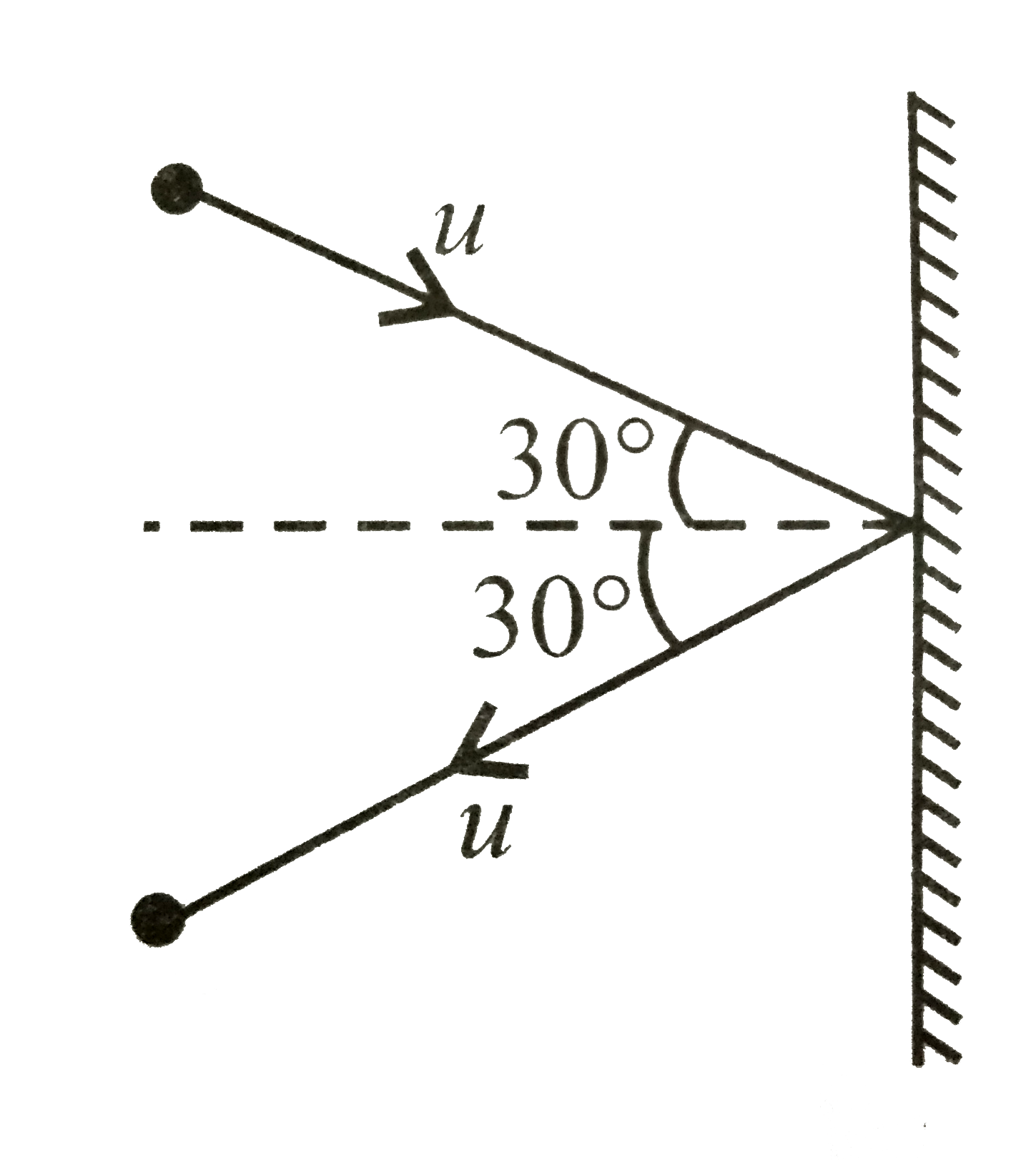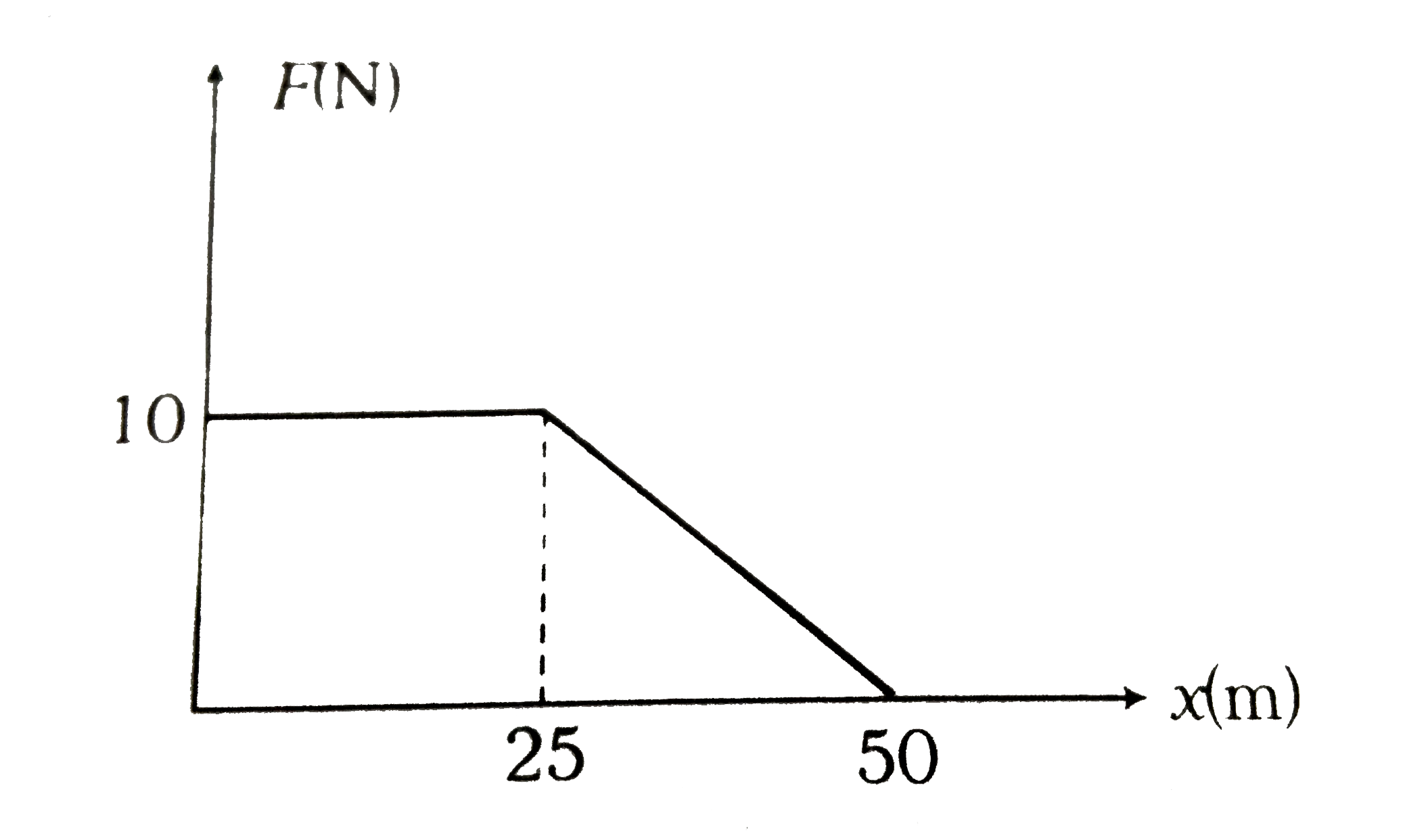A woman throws an object of mass 500 g with a speed of 25ms−1 .
(a) What is the impulse imparted to the object ?
(b) If the object hitts a wall and rebounds with the half the original speed , what is the change in momentum of the object ?
To solve the problem step by step, let's break it down into two parts as per the question.
Part (a): Calculate the Impulse Imparted to the Object
1. Identify the given values:
- Mass of the object, m=500g=0.5kg (convert grams to kilograms)
- Initial velocity, u=0m/s (the object starts from rest)
- Final velocity, v=25m/s
2. Calculate the initial momentum:
Initial momentum=m⋅u=0.5kg⋅0m/s=0kg m/s
3. Calculate the final momentum:
Final momentum=m⋅v=0.5kg⋅25m/s=12.5kg m/s
4. Calculate the impulse:
Impulse is defined as the change in momentum:
Impulse=Final momentum−Initial momentum=12.5kg m/s−0kg m/s=12.5kg m/s
Part (b): Calculate the Change in Momentum of the Object After Rebounding
1. Determine the rebound speed:
- The object rebounds with half of the original speed:
Rebound speed=252=12.5m/s
Since it is in the opposite direction, we take it as negative:
v′=−12.5m/s
2. Calculate the change in momentum:
Change in momentum is given by:
Change in momentum=m⋅v′−m⋅v
Substituting the values:
Change in momentum=0.5kg⋅(−12.5m/s)−0.5kg⋅(25m/s)
=−6.25kg m/s−12.5kg m/s=−18.75kg m/s
Final Answers:
(a) The impulse imparted to the object is 12.5Ns.
(b) The change in momentum of the object is −18.75Ns.
- Mass of the object, m=500g=0.5kg (convert grams to kilograms)
- Initial velocity, u=0m/s (the object starts from rest)
- Final velocity, v=25m/s
Initial momentum=m⋅u=0.5kg⋅0m/s=0kg m/s
Final momentum=m⋅v=0.5kg⋅25m/s=12.5kg m/s
Impulse is defined as the change in momentum:
Impulse=Final momentum−Initial momentum=12.5kg m/s−0kg m/s=12.5kg m/s
- The object rebounds with half of the original speed:
Rebound speed=252=12.5m/s
Since it is in the opposite direction, we take it as negative:
v′=−12.5m/s
Change in momentum is given by:
Change in momentum=m⋅v′−m⋅v
Substituting the values:
Change in momentum=0.5kg⋅(−12.5m/s)−0.5kg⋅(25m/s)
=−6.25kg m/s−12.5kg m/s=−18.75kg m/s
(a) The impulse imparted to the object is 12.5Ns.
Topper's Solved these Questions
- LAWS OF MOTIONBOOK - NCERT EXEMPLAR ENGLISHCHAPTER - LAWS OF MOTIONEXERCISE - Short answer type questions
6 Videos
- LAWS OF MOTIONBOOK - NCERT EXEMPLAR ENGLISHCHAPTER - LAWS OF MOTIONEXERCISE - Long answer Type Questions
9 Videos
- LAWS OF MOTIONBOOK - NCERT EXEMPLAR ENGLISHCHAPTER - LAWS OF MOTIONEXERCISE - Mutiple Choice Questions (More than One Options)
6 Videos
- KINETIC THEORYBOOK - NCERT EXEMPLAR ENGLISHCHAPTER - KINETIC THEORYEXERCISE - Multiple Choice Questions (MCQs)
31 Videos
- MECHANICAL PROPERTIES OF FLUIDSBOOK - NCERT EXEMPLAR ENGLISHCHAPTER - MECHANICAL PROPERTIES OF FLUIDSEXERCISE - Long Answer Type Questions
3 Videos
Similar Questions
Knowledge Check
A ball of mass m strikes a rigid walJ with speed u and rebounds with the same speed. The impulse imparted to the ball by the wall is
 Amu sin30∘tB2mu sin30∘tCmu cos30∘tD2mu cos30∘t
Amu sin30∘tB2mu sin30∘tCmu cos30∘tD2mu cos30∘tA ball of mass m strikes a rigid walJ with speed u and rebounds with the same speed. The impulse imparted to the ball by the wall is
A2muBmuCzeroD−2mu
An object travels 20 m in 4 s and then another 20 m in 10 s. What is the average speed of the object?
View SolutionAn object of mass 15kg is moving with a uniform velocity of 4m/s. what is the kinetic energy possessed by the object ?
View SolutionAn object moves 10 m in 4 s then turns left and moves 20 m in next 5 s. What is the average speed of the object?
View SolutionA body of mass m collides against a wall with the velocity v and rebounds with the same speed. Its magnitude of change of momentum is
View SolutionAn object travels 16m in 4s and then another 16m in 2s. What is the average speed of the object?
View SolutionAn object of mass 5 kg is acted upon by a force that varies with position of the object as shown. If the object starts out from rest at a point x=0. What is its speed at x=50 m.

View Solution
